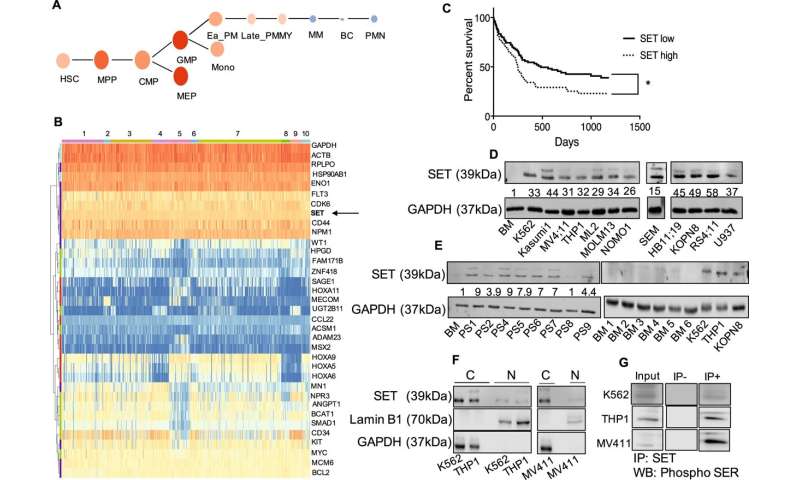Using open research tools to uncover a new therapeutic target for an aggressive blood cancer

Dr. Maria Teresa Esposito, Senior Lecturer in Biochemistry, and her team of researchers have been embracing the principles of open research and using open methods, data, and tools to support the discovery of a new therapeutic target for an aggressive form of leukemia.
Despite the establishment of national biobanks, for academics, having access to a big collection of well- annotated human biological samples can be very challenging, especially when studying rare diseases.
These samples are very important as they provide a tremendous resource to unravel the origin of a disease as well as to identify and validate new diagnostic biomarkers and therapeutic targets.
We used publicly available datasets and bioinformatic tools to validate the clinical relevance of an oncogene, called SET, in the prognosis of a blood cancer known as KMT2A-rearranged (KMT2A-r) leukemia, that represents a particularly aggressive subtype of acute myeloid leukemia (AML).
The analysis of some of these datasets was done using various pieces of software. Some of them are freely available and user-friendly, whereas others required a dedicated bioinformatician and computer power that we did not have in our team. We established a collaboration with a group of bioinformaticians to overcome this issue.
The clinical data we accessed were fundamental to validate the role of SET in AML and to make important new discoveries regarding its role in KMT2A-r leukemia. We confirmed that SET is over-expressed in AML patients and that its expression correlates with poor prognosis.
In addition, we discovered, that the expression of SET correlates with the expression of genes that characterize the "molecular signature" of KMT2A-r leukemia, prompting us to further investigate SET in our laboratory models of KMt2A-r leukemia.
Overall, the results of this research indicate that SET is required for the survival of KMT2A-r leukemia cells and that SET could be a novel therapeutic target for this disease.
We made our own datasets, generated as part of this project, freely available through the platform NCBI (National Center for Biotechnological Information) and PRIDE (Proteomics Identification Database EMBL-EBI), with the aim to increase transparency in research process and methodology and enable other researchers to benefit from our data.
We made the preprint manuscript publicly available on Research Square and then we published the final version of the paper open access in the journal Oncogene to disseminate our results widely and to increase collaboration opportunities.
Since then, we have established new collaborations with researchers in China and U.S. and engaged in conversations with pharma industries with the aim to pursue SET as a new therapeutic target for KMT2A-r leukemia. We hope that this research will eventually lead to new treatment options for patients affected by this disease.
To conclude, we have learnt that:
- Open research allows to address research challenges, such as access to gene expression profiles and prognostic data of patients, that might not be manageable otherwise.
- Analyzing and validating publicly available datasets contributes to making research more reproducible.
- Open research practices create opportunities for new interdisciplinary collaborations, both with academics and with industry, that could increase the societal impact of research.
More information:
Antonella Di Mambro et al, SET-PP2A complex as a new therapeutic target in KMT2A (MLL) rearranged AML, Oncogene (2023). DOI: 10.1038/s41388-023-02840-1
Provided by University of Surrey